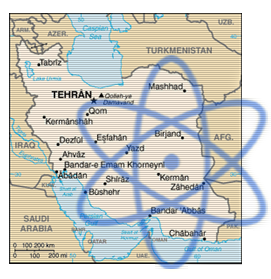 On 3-5 June 2010 Ben O'Loughlin will present a paper, 'How do we talk about nukes? EU, US and Iranian Strategic Narratives in Contemporary Diplomacy' at a symposium in Hamburg, Unclenching Fists: Dialogue and Diversity in Diplomatic Interaction. The paper, co-authored with Alister Miskimmon (Royal Holloway) continues the NPCU's research on 'strategic narratives'.
On 3-5 June 2010 Ben O'Loughlin will present a paper, 'How do we talk about nukes? EU, US and Iranian Strategic Narratives in Contemporary Diplomacy' at a symposium in Hamburg, Unclenching Fists: Dialogue and Diversity in Diplomatic Interaction. The paper, co-authored with Alister Miskimmon (Royal Holloway) continues the NPCU's research on 'strategic narratives'.
A strategic narrative is a narrative forged by a state with the express purpose of influencing the foreign policy behavior of other actors. This paper will examine whether the EU and the USA’s strategic narratives concerning Iran have been complementary or competitive, taking as its focus the 2009 Geneva talks between the EU3, USA, and Iran concerning Iran’s nuclear programme. Such moments of high politics represent ‘tests’ in which the (moral, political) criteria of worth present in each actor’s narrative is evaluated by others with reference to an empirical problem: in this case, Iran’s nuclear programme (Boltanski and Thévenot, 1991/2006). We examine the narrative strategies employed by each participant, respectively, as well as the style and mode of delivery or projection, and the manner in which each took the others’ strategic narrative and its delivery into account during interactions in this period. To what extent did each actor take into account the others’ criteria of worth and alter the content and register of their own narrative work by accounting for the perspective of the others; when was this useful and when not, when did this work and when not? How were principles of justice, legality, legitimacy and so forth invoked and negotiated as each actor pursued their interests? We explore the forms of evidence presented and made public by each actor, and the visual and rhetorical modes used to contextualise and frame the meaning of the evidence presented. We also analyse how these stylistic and evidentiary aspects of each actor’s diplomacy was received in the national media of each actor, and the degree to which this fed back into the process being reported on.





